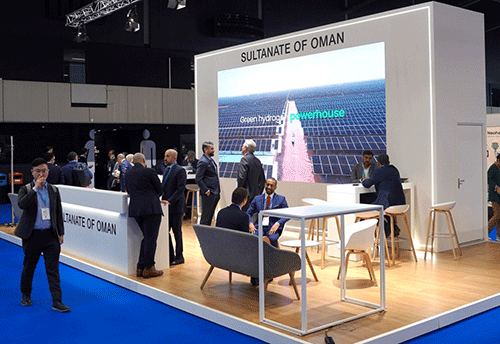Namibia’s aim of becoming the first carbon-neutral African country through the process of pursuing its green hydrogen ambitions is slowly but surely becoming a reality.
This is as the country’s green aspirations continue to attract worldwide attention, particularly efforts to combat climate change whilst in the process of evading carbon-intensive industrialisation.
Namibia is one of the countries participating in the World Hydrogen 2024 Summit and Exhibition currently taking place in Rotterdam, Netherlands.
The event is considered the largest and most high-profile global hydrogen event.
President Nangolo Mbumba is attending the global meeting alongside local officials, and yesterday delivered a keynote address.
“Over the past few years, government has worked tirelessly to position Namibia as the primary leader in the global market for green hydrogen, and we are now starting to see concrete visible results,” he said.
The President noted that as a result of tireless efforts, Namibia today hosts nine hydrogen projects, across two developing hydrogen valleys, with the potential for a third valley to be anchored by abundant iron ore potential.
Green hydrogen offers opportunities beyond just clean molecule production, as it holds the potential to anchor new industries in emerging markets across the globe.
“Namibia has always harboured a desire to become an indispensable logistics hub to the southern African region. To enhance this ambition, we are now developing an ammonia bunkering hub and a green hydrogen-powered train to decarbonise shipping and long-haul logistics routes,” Mbumba told the gathering.
Moreover, he advised that the focus should now be on key policy interventions needed to give birth to the burgeoning sector. He also took the opportunity to invite the global community to join Namibia and the rest of Africa at the African Global Green Hydrogen Summit.
This event is scheduled to take place in Windhoek from 3 to 5 September this year.
Also addressing a session at the Dutch summit, mines and energy minister Tom Alweendo said the global urgency to address climate change is increasingly mobilising strategic funding.
As such, assets with strong green credentials are ever more attractive to global investors.
According to Bloomberg New Energy Finance, investment in the low-carbon energy transition surged 17% in 2023, reaching US$1.8 trillion (over N$33 trillion). “It is clear, therefore, that governments and investors that embrace the green agenda will have a sustainable advantage in the race for scarce capital. Green industrialisation offers a clear pathway towards thriving manufacturing and service sectors, higher-skill industries, regional integration and a knowledge-based economy,” said Alweendo.
He further mentioned that a holistic approach, which requires cross-country coordination through deliberate collaboration between governments, is necessary to coordinate the deployment of cross-country rail, transmission lines and roads – all delivering goods to strategic ports.
Funding these assets, , will require a further mindset shift, as these assets will not be serving the needs of just one country, but likely an entire region.
According to the minister, public-driven partnerships and the strategic constitution of consortiums, with the aim of unlocking concessionary multilateral funding, will likely emerge as a preferred approach to developing the required assets.
Alweendo also told the global audience that Namibia estimates that the successful execution of its green industrialisation blueprint could unlock more than nine times the national stock of foreign direct investment between now and 2040.
This holds the potential to create more than a quarter-million jobs, while abating more than 75 million tonnes of carbon dioxide.



